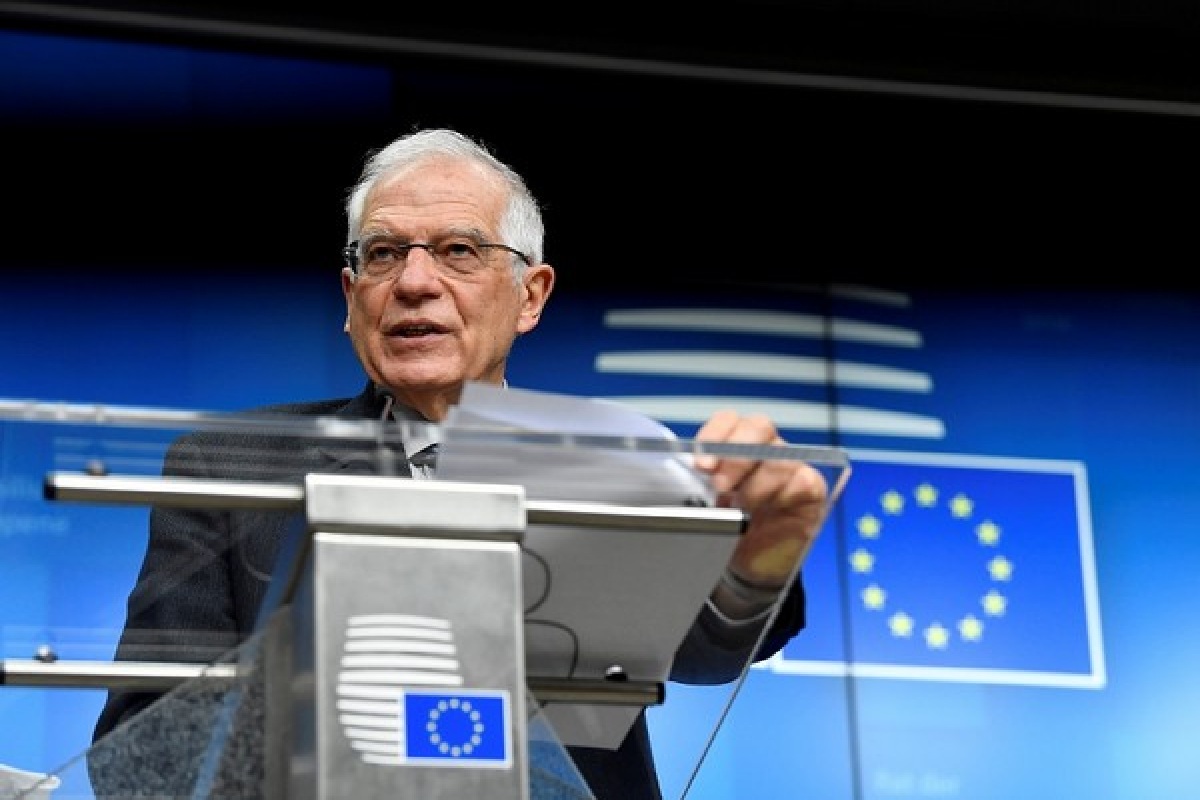Iran rejects Macron’s accusation of involvement in Ukraine conflict
Iran has rejected French President Emmanuel Macron's remarks that Russia has used Iranian military equipment against Ukraine.
The EU is also introducing a number of clarifications to existing measures, for instance in the field of public procurement, aviation and justice.

Photo: ANI
In the wake of the Russia-Ukraine war, the Council has adopted new measures intended to tighten existing economic sanctions targeting Russia, perfect their implementation and strengthen their effectiveness.
“Today, we are taking another important step to curtail Russia’s capacity to continue and finance its war of aggression against Ukraine. We are effectively banning Russia’s most significant export after energy – Russian gold. We are also extending the exemption of transactions for agricultural products and transfer of oil to third countries,” Josep Borrell, High Representative for Foreign Affairs and Security Policy. “Because the EU is doing its part to ensure we can overcome the looming global food crisis. It is up to Russia, to stop bombing Ukraine’s fields and silos, and stop blocking Black Sea ports,” he added.
Advertisement
According to the council of EU, today’s “maintenance and alignment” package introduces a new prohibition to purchase, import, or transfer, directly or indirectly, gold, if it originates in Russia and it has been exported from Russia into the EU or to any third country after. This prohibition also covers jewellery.
Advertisement
The package also extends the list of controlled items, which may contribute to Russia’s military and technological enhancement or the development of its defence and security sector, thereby reinforcing export controls on dual-use and advanced technology.
Furthermore, the new measures extend the existing port access ban to locks to avoid the circumvention of sanctions and expand the scope of the prohibition on accepting deposits to include those from legal persons, entities or bodies established in third countries and majority-owned by Russian nationals or natural persons residing in Russia. The acceptance of deposits for non-prohibited cross-border trade will be subject to a prior authorisation by the national competent authorities.
The EU is also introducing a number of clarifications to existing measures, for instance in the field of public procurement, aviation and justice.
“With a view to avoid any potential negative consequences for food and energy security around the world, the EU decided to extend the exemption from the prohibition to engage in transactions with certain state-owned entities as regards transactions for agricultural products and the transport of oil to third countries,” the EU council statement said.
“More broadly, the EU is committed to avoiding all measures which might lead to food insecurity around the globe. None of the measures adopted today or earlier in view of Russia’s actions destabilising the situation in Ukraine target in any way the trade in agricultural and food products, including wheat and fertilisers, between third countries and Russia,” it added.
Similarly, EU measures do not prevent third countries and their nationals operating outside of the EU from purchasing pharmaceutical or medical products from Russia.
In addition to economic sanctions, the Council decided to list additional individuals and entities and strengthen reporting requirements, putting the burden of declaring assets onto sanctioned people, in order to facilitate the freezing of their assets in the EU.
Advertisement